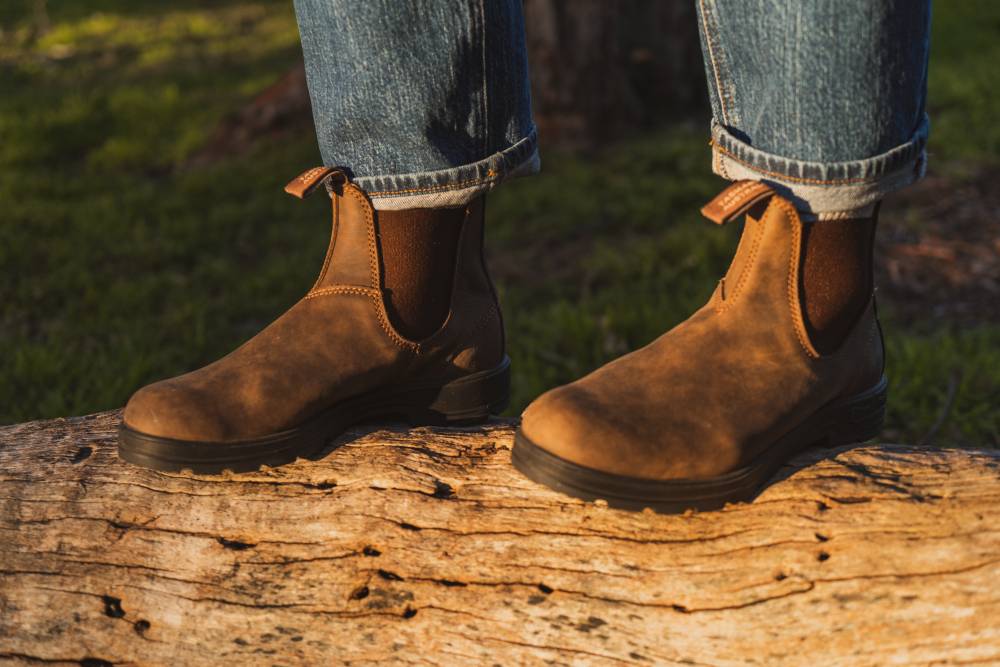
The Swedish shoe brand Vagabond Shoemakers recycles used shoes to reduce waste thanks to innovations. You can bring your old shoes to your nearest Vagabond store for reuse or recycling.
Vagabond's return service first launched in 2017 and offered thousands of post-consumer shoes an extended or new life.
The brand's initiative Shoe Bring Back in cooperation with German I:CO short for I:Collect makes in-store collection possible and gives them a new life through reuse or recycling.
"Almost 150 million tonnes of clothing and shoes are sold worldwide every year. The majority of this ends up in landfills or is incinerated instead of being reused or recycled, wasting valuable resources, and causing harm to the environment. Key reasons for this include low consumer awareness and urgency and a lack of collection structures in many countries. The traditional linear supply chain based on the “take-make-waste” business model is unsustainable."
- I:Collect GmbH, a global solutions provider for collection, reuse, and recycling of used clothing and shoes
The fashion industry is one of the largest polluters globally. It produces large amounts of waste, pollution, and carbon emissions every year. Sustainability is one of the most important issues of our time.
Read up my article on the fashion industry's catastrophic contribution to climate change to understand the impact of your wardrobe on the environment.

“Recycling is, alongside our aim of using more sustainable materials and production processes, a focus area for us, where brands and consumers really can cooperate in closing the loop. A big problem with shoe consumption is that a great deal of the shoes that are being thrown away, still have a lot to give. Therefore, the most important mission for the Shoe Bring Back project is to make sure that shoes that are still in wearable condition are being re-distributed to second-hand shops to extend product lifetime.”
- Ulrika Simonsson, Vagabond International AB sustainability, and CSR Manager
Achieving circularity has long been a goal of the company. Reusing, recycling, buying, and wearing used apparel and footwear are great ways to make the fashion industry sustainable.
Everyone has a role to play and can help reduce the social and environmental impact of fashion. Even small steps count toward protecting the planet, people, and animals living on it.
Large players in the textile and apparel industry must take massive action to reduce waste, pollution, and greenhouse gas emissions. As consumers, we can make better purchasing decisions and discard used items responsibly.
Follow my guide on how to keep your clothing out of landfills for more ways to get rid of used clothes and shoes responsibly.
“There are many steps each of us can take to become more environmentally responsible. In the long run, our main mission is to make sure all shopping decisions are conscious ones. Only buy what you really love. And when you don’t want to use your shoes anymore, leave them for someone else to use or for material recycling.”
- Anna Fahle Björcke, Vagabond International AB Head of Communications
The Swedish shoe brand will launch a new model "Vagabond Indicator Re-born" later this year in August 2020. The new shoe will be made from recycled material of old, worn Vagabond shoes. It will be available in two different versions: a Chelsea boot and a sneaker.
The recycling process shreds and breaks down shoes that can no longer be used. Rubber is one ingredient that can be extracted from worn shoes. Vagabond is currently testing how to use post-consumer rubber in new shoes.
The new recycling shoe manufacturing will take place in the Vagabond's factory in Vietnam and will be available exclusively in its online store and flagship stores in Sweden, Denmark, and Germany from EUR 120 to 140.
Learn more about Vagabond's sustainability initiatives and shop for its recycled shoes on Vagabond.com
Was this article helpful to you? Please tell us what you liked or didn't like in the comments below.
About the Author: Alex Assoune
What We're Up Against
Multinational corporations overproducing cheap products in the poorest countries.
Huge factories with sweatshop-like conditions underpaying workers.
Media conglomerates promoting unethical, unsustainable products.
Bad actors encouraging overconsumption through oblivious behavior.
- - - -
Thankfully, we've got our supporters, including you.
Panaprium is funded by readers like you who want to join us in our mission to make the world entirely sustainable.
If you can, please support us on a monthly basis. It takes less than a minute to set up, and you will be making a big impact every single month. Thank you.
































0 comments